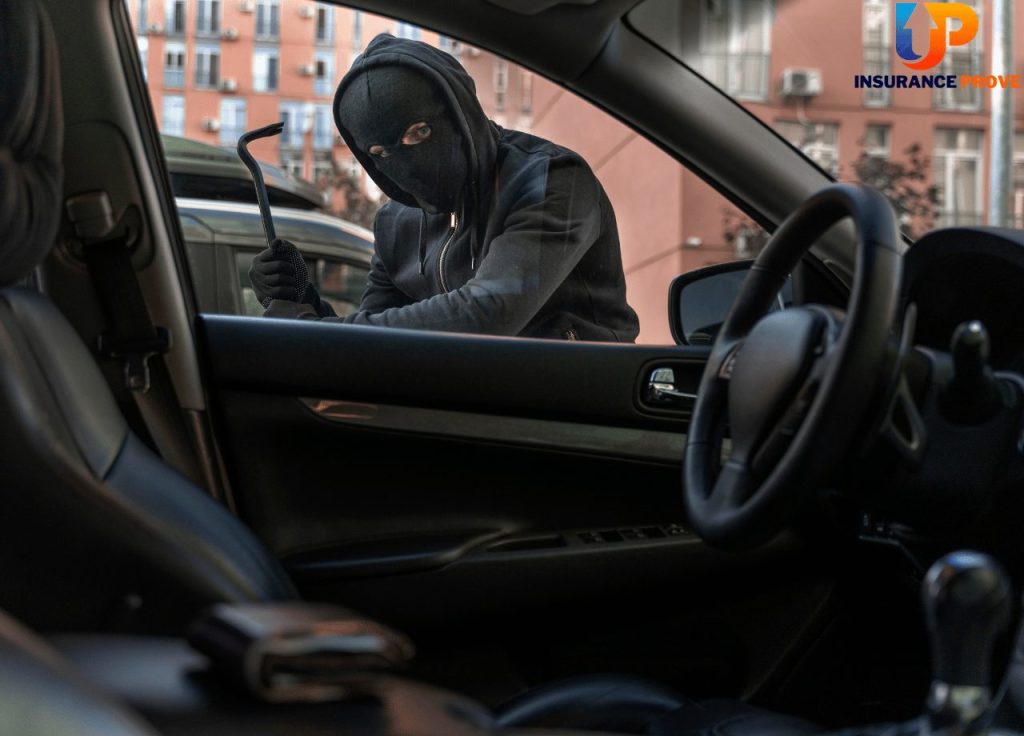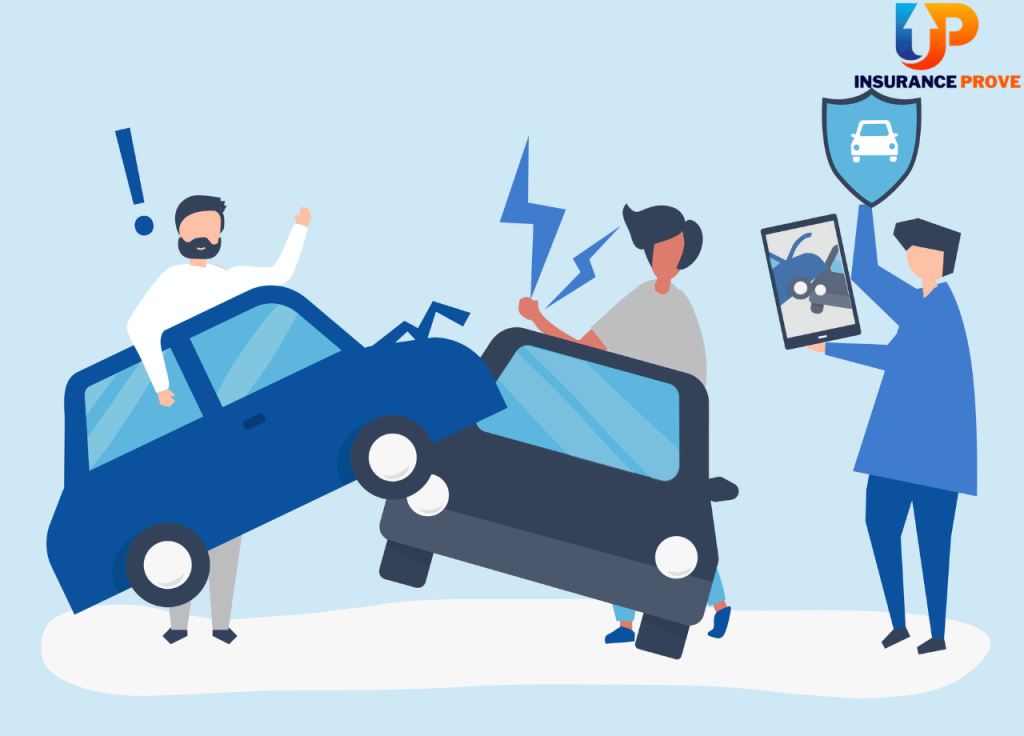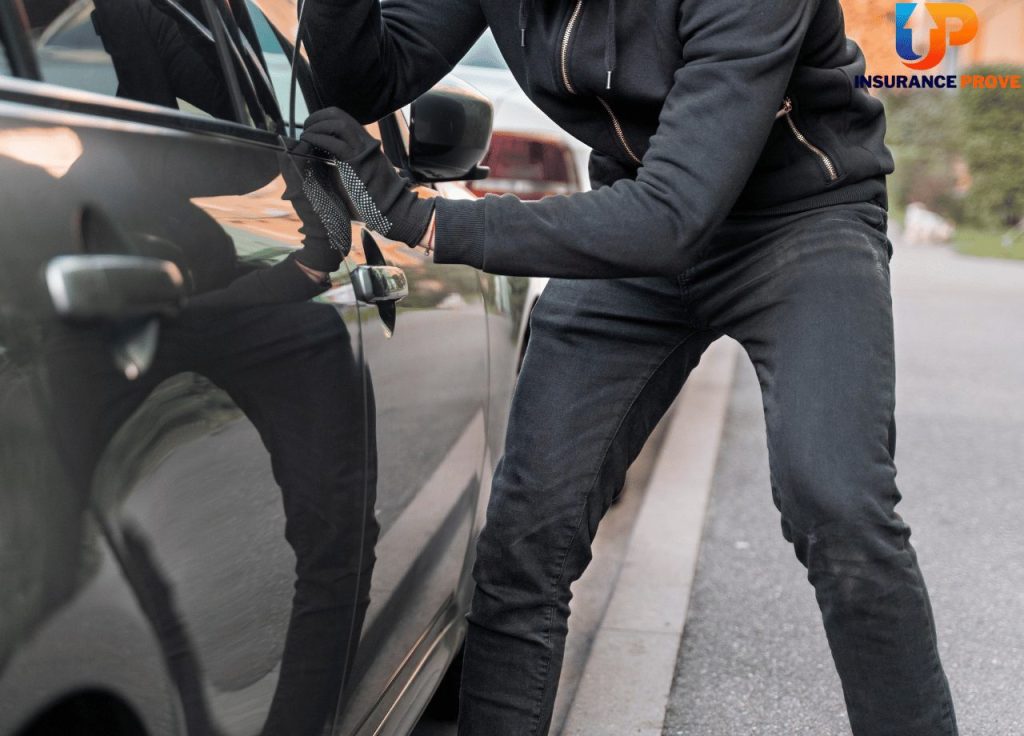Having your car stolen can be extremely stressful and inconvenient. However, not having comprehensive insurance coverage to help replace your stolen vehicle can make the situation even more challenging financially. This blog post will discuss your options and the best next steps if your uninsured car gets stolen.
The first and most urgent step is to report your car stolen to the police immediately. Be prepared to provide your vehicle’s make, model, year, license plate number, VIN, and distinct features. This report is critical for potentially recovering your car and documenting the incident.
You’ll also want to call local tow companies, impound lots, and salvage yards to notify them of your stolen vehicle’s make, model, and plate number. Please give them your contact info in case your car turns up there.
Navigating An Uninsured Auto Theft
Dealing with the fallout of an uninsured stolen vehicle can be an extremely turbulent situation full of uncertainty. Here’s what you need to know for navigating life after an uninsured auto theft.
First, understand your financial realities. Without comprehensive insurance, you’ll get no payout to replace your stolen car. Explore all recovery resources like police investigation, community groups, fundraising help, legal aid services, public transit options, and any transportation assistance programs available.
You may need to make significant temporary lifestyle adjustments to earn, borrow, or save money for another used car. The challenges will be complex but focus on problem-solving one step at a time. With resourcefulness and determination, you can get your transportation needs met again.
My Vehicle Was Stolen: Options For The Uninsured
Having your vehicle stolen is tremendously inconvenient, regardless of insurance coverage. But you are uninsured, which means paying out of pocket to replace your stolen car. Depending on costs, that may not be financially feasible. Here are other options to explore if your uninsured vehicle gets stolen:
Public Transit: Map out routes and options like buses, trains, rideshares and cabs near common destinations. Multi-modal trips may take longer but can afford you where you need to go.
Borrowing Vehicles: Ask trusted friends or family if you can borrow a spare car for essential trips in exchange for gas money or bartered services.
Purchasing Used Car: Save up to buy an affordable used car. Explore certified options with warranties for added financial protection.
Rentals: Consider renting more occasionally for hard-to-access places not easily reachable by rideshares or public transit alone.
Alternative Transport: Scooters, bikes, and motorcycles could also meet transportation needs more affordably. Do safety research to ensure it’s a good option for your area and experience level.
What To Do When Your Uninsured Car Is Stolen
Discovering your uninsured car stolen can be incredibly stressful. Where do you even start to pick up the pieces? Use this checklist to report the essential information and explore your options:
– File a police report with all identifying details about your stolen car ASAP.
– Call local tow yards/impound lots with vehicle descriptors if it was towed.
– Check if any credit cards cover rental car reimbursement as a temporary benefit.
– Research your local public transit map and options like rideshares, taxis, and bikes to cover essential trips.
– Get quotes on replacing the car with an affordable used vehicle you can buy outright.
– Calculate total transportation costs to see if using alternative options is more economical.
Staying focused on practical next steps will help you effectively problem-solve this challenging situation.
Responding To Auto Theft With No Insurance Protection
Having your vehicle stolen can quickly become desperate, especially if you lack insurance protection. Remaining calm and strategic is critical for navigating through this effectively.
Start by filing a police report with all relevant vehicle identifiers to start the recovery process ASAP. The sooner they start tracking it down, the better chance of getting it back undamaged.
Meanwhile, assess your immediate transportation needs. Could coworkers cover you temporarily with rideshares or carpools? Local rideshare credits or transit passes could help. Develop an action plan balancing affordability and urgency of required trips.
Long-term, explore your options for saving up for a used replacement vehicle purchased outright with cash or financing. Compare the costs of alternative mobility options as well, like bikes, motorcycles or scooters. Evaluate your budget to determine the most realistic transportation solution you can manage financially.
With resourcefulness and diligent tracking of recovery efforts, an uninsured auto theft doesn’t have to spell disaster. Careful response is critical.

Managing Life After An Uninsured Car Theft
Picking up the pieces after an uninsured stolen car requires assessing priorities and getting strategic with transportation alternatives. Give police as many identifying details about your stolen car as possible to aid recovery. Ask about victims of crime resources for financial assistance programs or free legal advice services.
Consider public transit passes, rideshare services, bicycles or e-bikes for daily commuting needs. Compare rates against taxi services for occasional use traversing wider distances, too. Those with physical mobility limitations can explore paratransit or community shuttle services catering to accessibility needs.
To afford eventual vehicle replacement, create savings goals and budget revisions, redirecting as much excess monthly income as possible toward that goal. Selling unneeded possessions can kickstart funds immediately, too. Explore state, local and nonprofit programs for financial help for uninsured theft victims working toward self-sufficient mobility again.
The Challenges of An Uninsured Car Theft
Recovering from an uninsured stolen vehicle brings complex stressors and financial challenges most struggle to overcome alone. Without insurance claim payouts, you must fund car replacement independently somehow. Here are common setbacks faced:
– Sudden lack of reliable transportation for job, school, and childcare commutes
– Public transit gaps making key destinations time-intensive or completely inaccessible
– Low annual income levels unable to compete with used car listing prices and financing terms
– Rideshares and taxis are quickly becoming cost-prohibitive for frequent use
– Saving up for replacement vehicle taking months or years to accumulate the required amount
– Secondhand cars carry an inherent risk of breakdowns and costly mechanical issues
An uninsured driver who left abruptly immobile faces tremendous obstacles in earning/borrowing enough money to buy a replacement vehicle outright. Patience and resourcefulness in exploring alternative affordable transit will be required in the meantime.
Finding Financial Assistance After An Uninsured Auto Theft
The financial stress of an unrecovered stolen vehicle can be extreme, especially if uninsured. Start by filing a police report and then researching options like:
Crime Victim Funds
Many local governments have funds supporting crime victims with application-based grants helping offset uninsured financial losses. Income restrictions often apply but are worth exploring.
Nonprofit Support Programs
Various nonprofits may offer transportation, employment or emergency hardship assistance to qualify uninsured theft victims trying to re-establish self-sufficiency.
Employer or Agency Aid
Some employers, social workers, and religious groups will crowdsource donations internally to help community members in crises like uninsured auto theft via grants or revolving no-interest car loan programs.
While uninsured auto theft victims undoubtedly face gruelling challenges ahead, numerous groups exist to help those committed to rebuilding their lives after devastating crimes or accidents. Seek out an advocate to help connect you with available resources.
Applying For Aid After An Uninsured Stolen Vehicle
Coping after an uninsured stolen vehicle requires getting creative, meeting transportation needs, and seeking any financial aid possible. Here are tips for applying for assistance:
Seek social worker guidance in understanding eligibility requirements for federal, local and nonprofit assistance programs. Bring evidence of unpaid losses.
Convey urgency if the transportation gap forces loss of employment, food access struggles or medical care delays. Emphasize how aid will help get your life stabilized.
Ask support staff for application assistance. Provide documentation verifying identities, addresses, income statements, police reports and letters of support from community references.
Follow up on submissions and appeal any rejections. Reapply cycles may fund more requests. If one organization denies you, keep persevering through the complex process.
Uninsured auto theft causes immense hardships, but resources exist to help victims restore daily function after catastrophic losses. Paired with determination, assistance grants help progress recovery efforts.

Seeking Help From Community Groups After An Uninsured Car Theft
Local community groups like religious congregations, social clubs, veterans organizations, cultural centres, and nonprofits often band together to assist members enduring crises like uninsured car theft.
Reach out, explaining how your sudden transportation gap left you without a reliable way to reach critical medical appointments, work shifts, and childcare needs. Even if groups lack funds to donate directly, they may organize impromptu carpooling schedules with members to cover commutes or share contacts to resources like bicycles, wheelchairs, or mobility scooters available affordably secondhand.
Members may volunteer mechanical skills too, evaluating affordable used vehicles for problems before purchase or contributing parts/labour to get donated cars road-safe. Or they could run fundraising drives through social networks trying to secure flexible car loans independent of credit scores.
Tap every community connection possible, brainstorming creative solutions for your specific transportation access barriers post-auto-theft. No promising lead or gesture is too small when rebuilding stability from scratch.
Turning To Nonprofits After Uninsured Auto Theft
Non-profit organizations exist to help uninsured theft victims recover stability through financial support, free legal consultations, employment aid, and transportation assistance. Research groups specializing in services for low-income households or crime victims in your state or region.
For example, Goodwill Industries and United Way may cover job training programs, while Access-A-Ride provides transit vouchers to those facing physical mobility limitations. Legal Aid offices can advise recovering assets or restitution orders in court. Grants helping offset public transit costs, used vehicle purchases and auto repairs may be available depending on enrollment eligibility.
Compassionate non-profits aim to guide vulnerable demographics toward self-sufficiency again after crisis misfortune. Maximizing these resources eases the burden of independently replacing uninsured stolen property, medical bills or income losses. Partner with a non-profit ally so you don’t endure recovery alone.
Fundraising To Recoup Losses From An Uninsured Stolen Car
Crowdsourced fundraising campaigns help many without insurance recoup assets lost unexpectedly to theft or accidents. Share details on platforms like GoFundMe explaining hardships created by losing vital transportation permitting self-sufficient living and working.
Effective campaigns convey urgency, share plans using funds wisely, and encourage community sharing to boost visibility. Photographs help connect audiences emotionally, too.
While needing assistance, uninsured theft victims shouldn’t feel ashamed to request temporary help to get back on their feet. Repay kindness later once stabilized.
Bright tip: Some employers and colleges permit community fundraisers on-premises or via social channels. Ask about policies allowing on-site donation drives.
Every contribution adds up starting from zero, replacing uninsured stolen property essential for livelihood and independence. Let loyal friends feel empowered directly to solve an injustice through grassroots financial mobilization.
Using Public Transit After Losing An Uninsured Vehicle
Adjusting to life without personal vehicle ownership requires heavily relying on public transportation accessibility to meet daily mobility needs. Compile regional transit maps and schedules from buses, trains, and ferries, accessing routine destinations like jobs, grocery stores, schools, and hospitals.
Compare rideshares against discounted multi-ride passes, cost efficiency, and convenience timing transfers: factor senior, disability and low-income fare subsidies where available. Apps like Moovit integrate schedules across multiple providers for trip planning ease.
Become well-versed in optimal connections, fares, and accessibility challenges unique to those with physical limitations requiring paratransit. Find mobility training through local transit authorities if needing guidance transitioning to a car-free lifestyle long-term. Patience, planning, and a willingness to ask for help allow smooth adaptation.
Getting Legal Help After An Uninsured Stolen Car
Navigating legal channels seeking restitution for uninsured stolen vehicle losses spans unfamiliar, intimidating territory for theft victims lacking financial resources. Getting some free legal assistance outlining options helps ensure rights get addressed responsibly.
Start researching nearby legal aid community services, law school pro bono programs and court self-help centres. Book appointments, understand first steps, document losses, work with police and send demand notices to owners refusing responsibility for negligent security permitting theft opportunity.
Counsellors further explain minor claims court filing procedures for recovering owed damages up to state limits and recommend additional regional resources like reduced fee mediation so agreements get structured affordably. Getting legal advice strengthens confidence in addressing accountable parties properly.
Understanding Insurance Limitations With Auto Theft Claims
Most standard car insurance policies cover theft damages under comprehensive collision plans, not general liability ones. That means owners stuck with just basic liability insurance receive no compensation from their provider for replacing stolen uninsured vehicles themselves.
Comprehensive policies cost extra to protect against losses by theft, flood, fire, vandalism, and environmental incidents. Some insurers may help owners with subrogation, though, trying to legally recover owed assets from negligent parties permitting theft vulnerability.
Without comprehensive coverage, however, uninsured auto theft victims endure setbacks entirely solo – filing police reports, transport adjustments, legal navigation and funded replacement through savings, loans or generosity from others. Review insurance needs assessing risks. Pay the premiums for comprehensive insurance or assume all out-of-pocket burdens from vehicle crimes. The choice heavily weighs priorities.
Navigating Police Procedures With Uninsured Auto Theft
Auto theft involving uninsured vehicles warrants reporting losses promptly to activate police documentation and recovery attempts through regional alert systems. Be prepared to provide officers with identifying details like make, model year, colour, VIN number, license plate number and any unique features like damage or customizations quickly noticed. Serial numbers of stolen audio equipment and registration documents help to identify rightful owners.
Advice For The Uninsured After Auto Theft
Recovering from an uninsured stolen vehicle means absorbing major financial and legal stressors without the buffer of insurance claim payouts to ease vehicle-replacing burdens. Handling each challenge strategically helps progress long-term transportation goals, however.
Start with police documentation on stolen vehicle specifics to activate recovery attempts through area theft alert systems. File paperwork for denial appeals from credit card companies, rental agencies or repair shops refusing reimbursements without official reports.
Meanwhile, research all transit alternatives meeting short-term mobility needs through buses, trains, paratransit, rideshares, bikes or carpool options. Seek social worker referrals to financial assistance programs offsetting unpaid debts accumulating after the crisis.
Lastly, build community empathy and Crowdfunding support to explain hardships in managing life disrupted without reliable transportation. Accountability and compassion from society help theft victims slowly stabilize recovery footing again.
Stay determined to regain self-sufficiency. With resourcefulness and responsible financial planning, transportation independence will be restored quickly. Just brace for a demanding journey, and don’t lose hope when support feels scarce.

Tips and Tricks
Here are some Tips and Tricks about “My Car was Stolen Without Insurance”
- Contact your bank and credit card providers to lock accounts and monitor for suspicious activity. Thieves may have stolen personal information along with your car.
- Leave a spare key with a trusted friend or family member if you need to borrow their vehicle temporarily.
- Get copies of your police report to creditors, rental car agencies, public transit offices, or anywhere else where documentation and proof of the theft will be required.
- Set up ride-share accounts, get maps of public transportation options, bike routes, etc., ahead of time while you still have internet access. Don’t get caught without backup mobility plans accessible offline.
Conclusion
You are recovering stability after uninsured auto theft proves challenging, requiring resourcefulness, piecing together transportation alternatives, social service support and community generosity to stay afloat. While the psychological impacts frustrate and financial stress burdens seem impossible, overcoming them alone has hope. With extensive planning, accountability, communication, and grit, the hardship remained temporary. Mobility independence will be yours again. Commit to diligently working through recovery obstacles – if solutions feel unclear, seek counsel so no promising option gets overlooked. Your perseverance will be rewarded with transportation restored and lessons learned.
Frequently Asked Questions
Here are some frequently asked questions (FAQs) about “My Car was Stolen Without Insurance”
A: Timeframes vary widely, but expect days at minimum, often weeks before release. Police hold vehicles as evidence until investigations conclude.
A: Most standard policies only cover auto theft damages or reimbursement without purchasing extra comprehensive protection.
A: There are options to navigate small claims court or mediation independently. But legal counsel helps ensure rights and recovery options get fully protected.